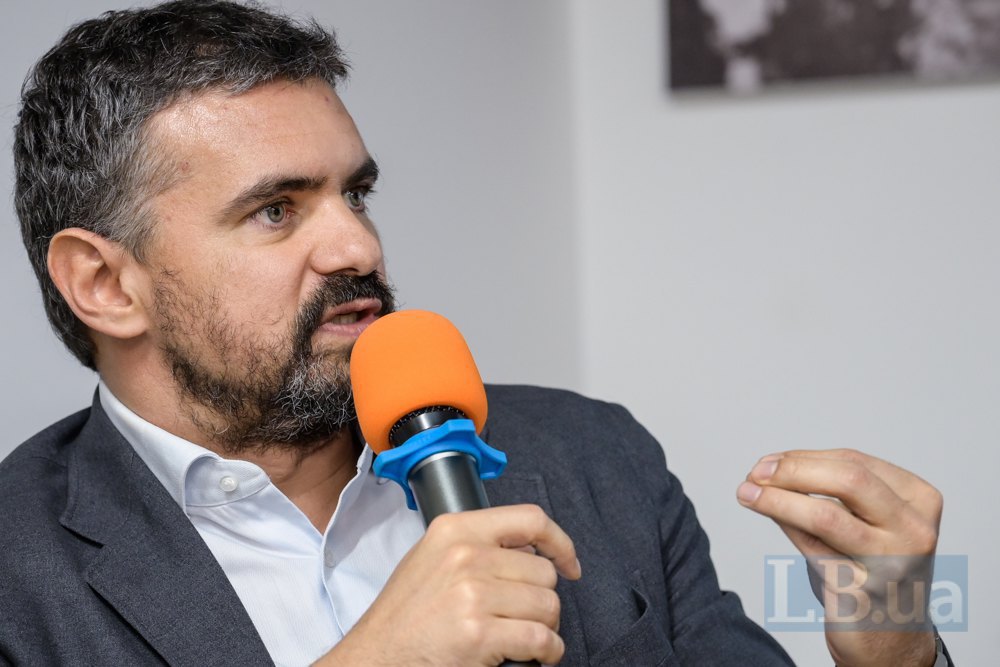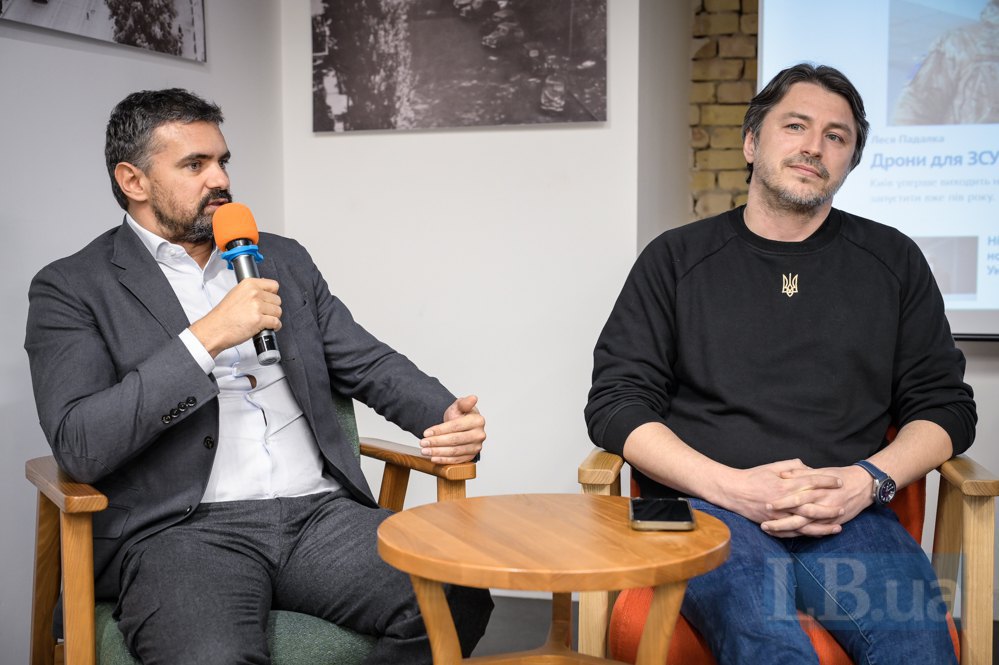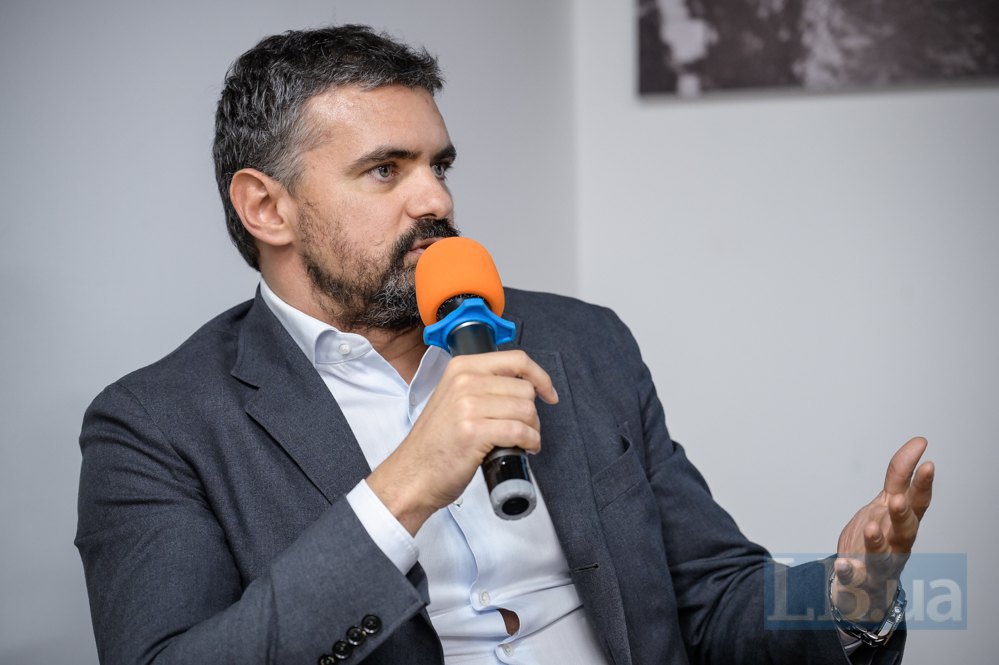
"Naturally, we cannot compete with Russia in terms of the number of troops or mobilised people. Moreover, the Ukrainian people deserve that we use the resources we have as efficiently as possible and value human life. We have to win technologically and innovatively," says Liski.
However, Ukraine currently depends on partners for 95% of its arms supplies, the businessman said.
"I would really like Ukraine to have a little more sovereignty. We are completely dependent on air defence. And we don't have it. There are developments, but we are not even 10% self-sufficient. Not only with systems, but also with missiles for them. Tomorrow, for example, we will be left without missiles. Some deputies and congressmen won't vote for it, and that's it," Liski said.
The same goes for ammunition.
"Right now, the notional Czech Republic is doing this [looking for ammunition for Ukraine] more effectively than a country where hundreds of people die every day. I'm even a little ashamed of us.
...The same 155s, 152s, 122s, mines. I wish we could at least close our own calibres. Because now the Czechs have not bought something - and that's it: one in seven [the use of ammunition by us and the enemy], and that's it. And this is everyday life. I want to look at things more realistically. And the most important thing is to ask ourselves whether we have done everything to prevent this from happening," says the businessman.
Dependence on partners can also lead to a loss of subjectivity, he believes, as further supplies could, for example, become an ultimatum to bring Ukraine to the negotiating table with Putin.
"We need to understand that tomorrow could be much worse than it is now. If we want to be a subject, if we want a real victory, if we want a long-term, real independence, we must provide ourselves with ammunition," said Liski.
Regarding the introduction of technology in the defence sector, the businessman noted that Ukraine was the first to go this way. Today, we have drones - airborne, ground, surface, underwater - and we have good, breakthrough things, but this is not enough, the businessman is sure.
To make a technological breakthrough, Liski believes that Ukraine lacks systematic implementation and industrial production of weapons on a large scale.
"You know, in business, there is always R&D, which, thank God, is great. We have a lot of talented people, many of them at the frontline, and we have a lot of really cool, breakthrough ideas to survive. R&D is working... But this is where systematic work at the state level should come in... Volunteering should be a very important philosophy of the Ukrainian nation. It is important to plug holes and make decisions quickly. But the war must be organised and won by the state," Liski said.

In his opinion, the state should demonstrate a venture capitalist, start-up approach to give innovations a chance. And introduce public-private partnerships for their mass production with greater involvement of business in Defence Tech. Today, he calls the participation of private business in defence insufficient.
"For example, I consider myself one of the most efficient producers who has proven that I can quickly launch production. Why don't I know what the country needs? I may be making some parts for UAVs... I have repeatedly appealed to the National Security and Defence Council and ministers: where is this effective business mobilisation? Why is this a state secret, what do we lack? I am guerrilla, using my connections, helping someone with something. Secretly," says the Chairman of the Supervisory Board of EFI Group. He adds: "If we don't turn on the energy of business, money and private capital, we will be looking for efficiency for a long time."
We also need to attract foreign investment and technology.
"We can produce more APCs than we need and sell some of them. And for this money to buy air defence systems or missiles. This is only an example," the businessman suggests. The problem with exports can be solved by licensing, he believes.
"And secondly, we often lack simple but effective Western technologies. Everyone knows that Ukrainian engineers are a superpower. Right now, they can test systems of any complexity because this is the most intense military conflict in the last 80 years. Everything that can and cannot be tested here is being tested. And the state should create conditions to attract this private capital. Perhaps we could create a unit on the basis of Brave1 that could be a bridge between private companies, private capital and Ukrainian technology. We need to create this cluster right now so that it can work for victory. And with money will come interest, speed, efficiency, technology, and victory will be much faster," Liski said.
And the last thing that the state lacks today is a strategic vision of where we are developing, where military thought is moving, where we want to be, the businessman notes.
"In the US, there is the so-called DARPA (Defence Advanced Research Projects Agency), which finances innovations, attracts scientific resources to product development... I'm sorry, I want to dream of a new air defence system based on laser technology, because this is the only one so far, in my understanding, that can cover the sky 100% from this number of UAVs.
...Do we have any strategic body that collects the scientific potential of the war of the future? Is anyone thinking about this?" the businessman said.
"The lives of Ukrainian soldiers directly depend on our efficiency. Ammunition, the introduction of new technologies, electronic warfare, drones, ground robots, turrets, if you count human lives, it's simply worthless. Let's forget the Soviet military history of indifference to human lives, where there were "collateral damage" or "acceptable losses". We have to be different from our northern neighbour and fight for the lives of every soldier," summed up Ihor Liski.









